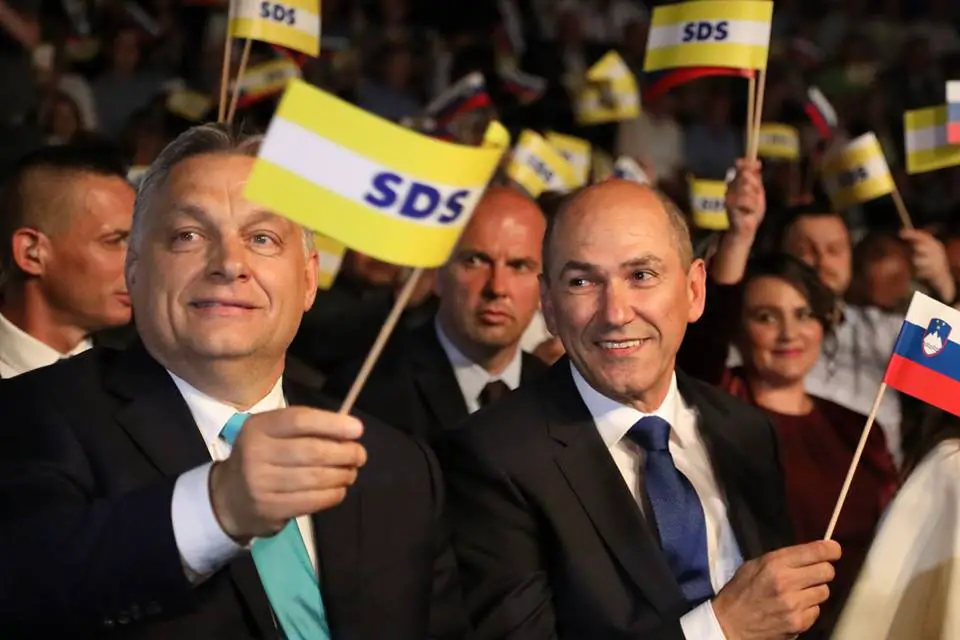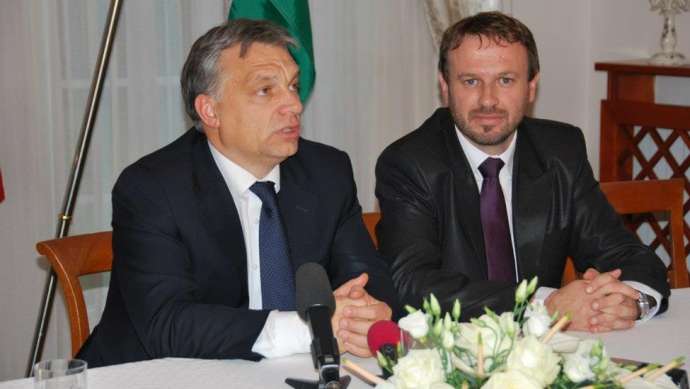Balkan Insight has just published a three-part series looking at the efforts of the Hungarian Prime Minister Viktor Orban with regard to the “virtual reunification” of the country under his form of “illiberal democracy”, with lavish spending aimed at courting the ethnic Hungarian communities in neighbouring states, as well as the wider media and political scenes. The series looks at Slovenia, Serbia and Romania, and what follows is a summary of the first, “In a Hungarian Corner of Slovenia, a Homegrown Orban”, by Akos Keller Alant.
2/3 of the country was taken away https://t.co/ZYKJH78pcm pic.twitter.com/HGngXuvChw
— About Hungary (@abouthungary) June 4, 2019
Slovenia Condemns Orban-related Tweet Claiming Prekmurje Was Stolen From Hungary
The story opens in 2016, when a theatrical production of a Hungarian musical was to be staged in Lendava, aimed at Slovenia’s 6,000 or so ethnic Hungarians. However, the Hungarian Self-Governing National Community, or MMONK, which is tasked with representing the community, tried to get the show cancelled, with no official reason given by the president, Ferenc Horvath. Still, the organiser felt that perhaps the real reason was the fact the performance would mean royalties would have to be paid to an institution in Budapest known for its support of liberal causes, including migrants and refugees, a group Orban is among the most vocal in Europe with regard to opposing
Related: New York Times Examines Orban’s Media Allies in Slovenia
The performance went ahead, but since then the theatre company has been disbanded due to lack of funding, while Lili Keep, the women who organised the performance, was forced out of her job as director of the Institution for Hungarian Nationality and Culture, replaced by Horvath’s deputy at MMONK. Keep claims that she was pushed out because she was too liberal, a fact that Horvath doesn’t dispute, although he adds that it was because she was finically too liberal, and couldn’t maintain the Institution’s finances.
This, the story claims, is symptomatic of the control Budapest has over ethnic Hungarians over the border, which is also financial, due to generous spending (especially since 2015), as well as offering other inducements to identify more strongly with the homeland and vote, such as making getting Hungarian citizenship easier. Such efforts, when they make it to the ballot box, see landslide wins for Fidesz (Orban’s party) among Hungarians outside the country.

Victor Orban and Janez Janša at an SDS rally, 2018. SDS' Facebook page
Horvath, since 2018 a deputy in the Slovenian Parliament, is now the main go-between for the governments in Ljubljana and Budapest when it comes the Hungarian community in Slovenia. He has also changed the statues of MMONK and, according to historian Attila Kovacs, a former local councillor in Prekmurje, taken power away from the community and placed it in his own hands.
Related: Parliament Opens Inquiry into Foreign Money in Slovene Politics, Focusing on SDS & Hungary
As Kovacs tells Balkan Insight: “Mr. Horvath uses his power in an authoritarian way. He appoints people loyal to him to every important position, while he marginalises everyone who is critical of his politics.”
The benefits of being winning Horvath’s favour can be considerable, since he’s responsible for assigning the funds received from Hungary. These have grown rapidly in recent years, from just €222,000 in 2015 to just under seven million euros since 2016.
Horvath’s election to Parliament led to an investigation by the state Committee for the Prevention of Corruption, which ordered him to resign as either an MP or president of MMONK, two positions he continues to hold, while – it should be stressed – maintaining his innocence.
Related: Parliamentary Committees Condemn Hungarian Interference in Slovenian Media
While in Parliament Horvath had himself appointed to a special committee investigating whether Janez Janša, the leader of SDS who won the last elections in 2018, but who was unable to form a government, received illegal campaign contributions from Hungarian allies of Orban.
The full article goes on to examine Horvath’s role in the Hungarian language media in Slovenia, the television arm of which was criticized in 2018 by the media ombudsman for being overly focused on the Hungarian government, Fidezs and its supporters. You can find it here.
All our stories on Hungary and Slovenia are here






